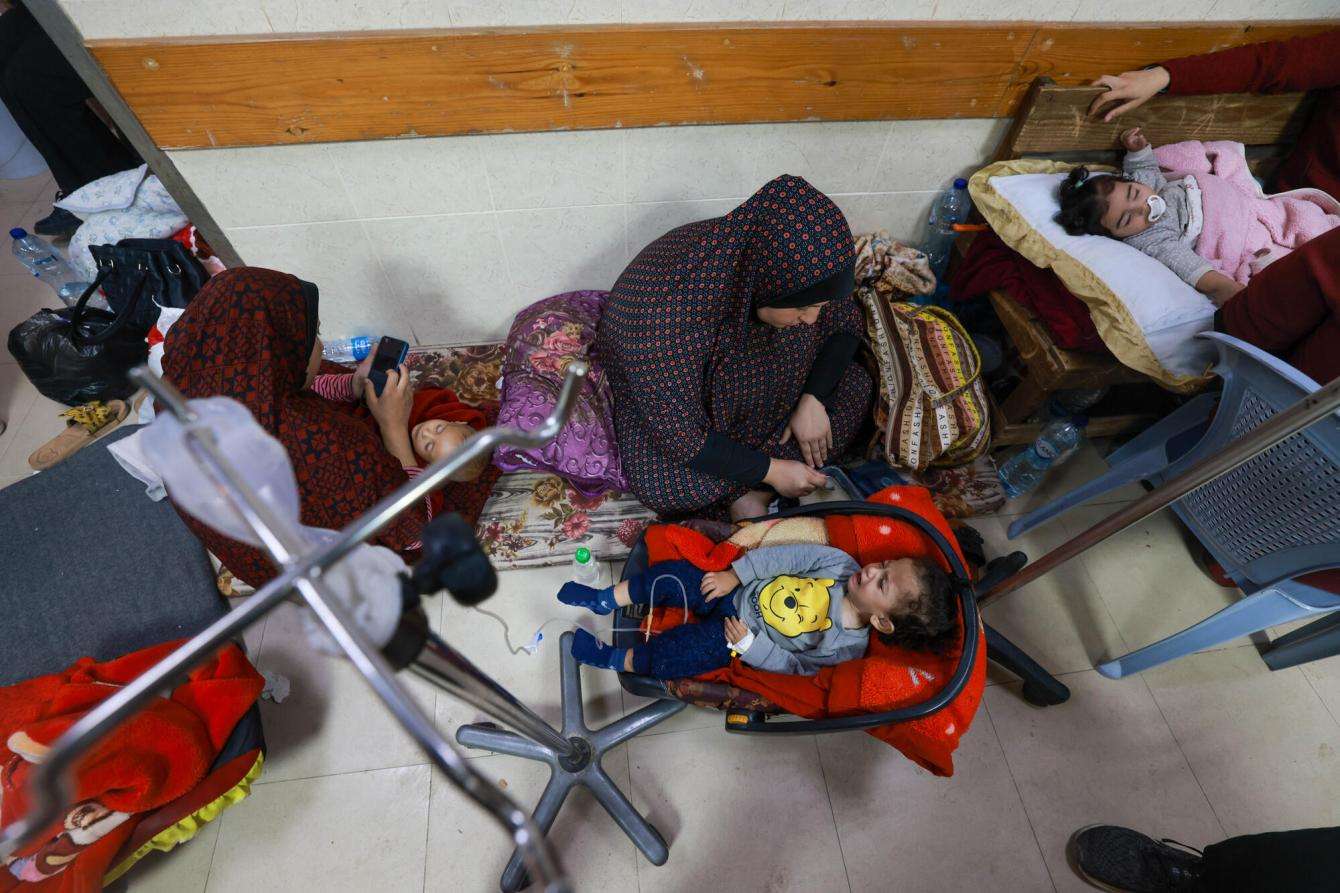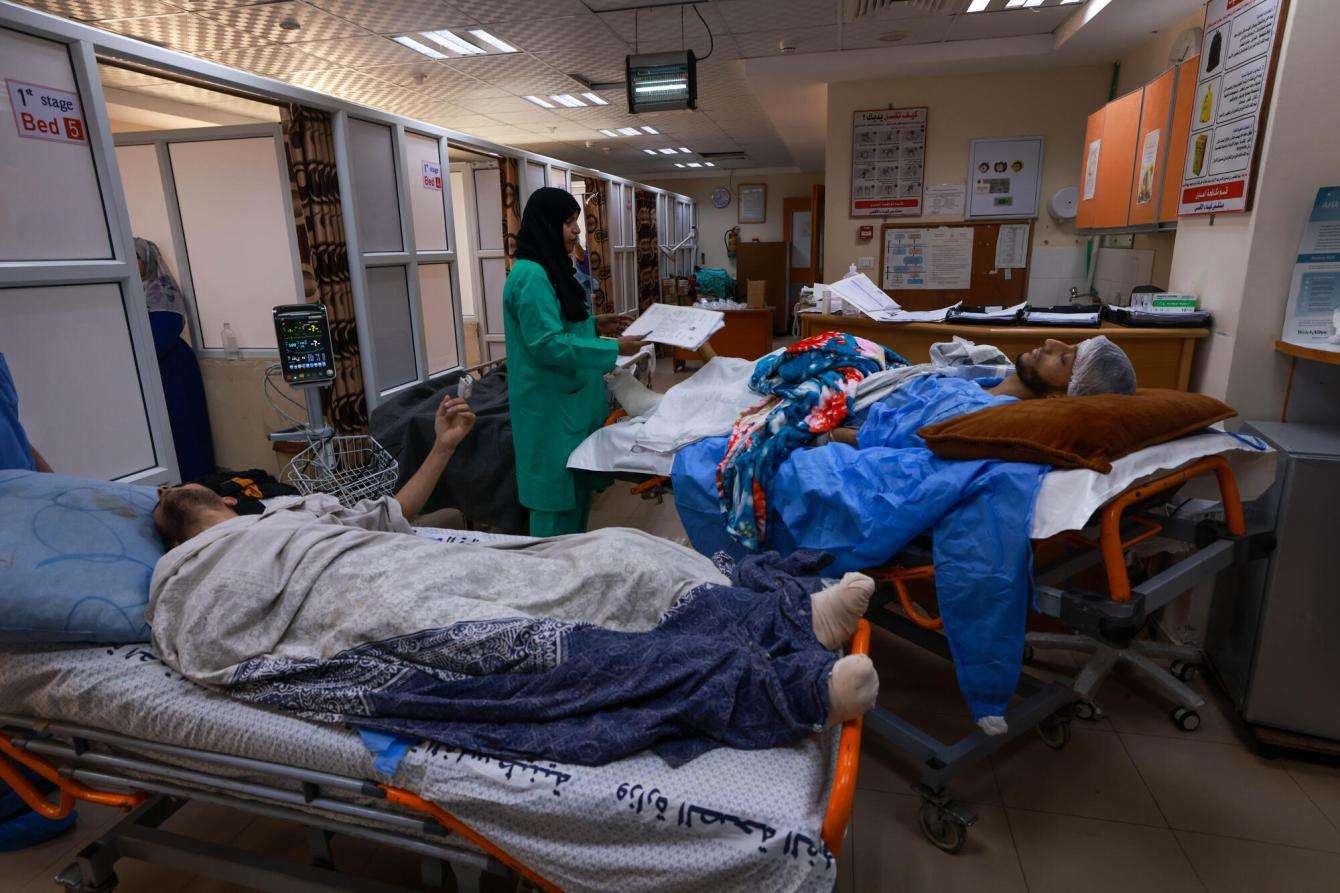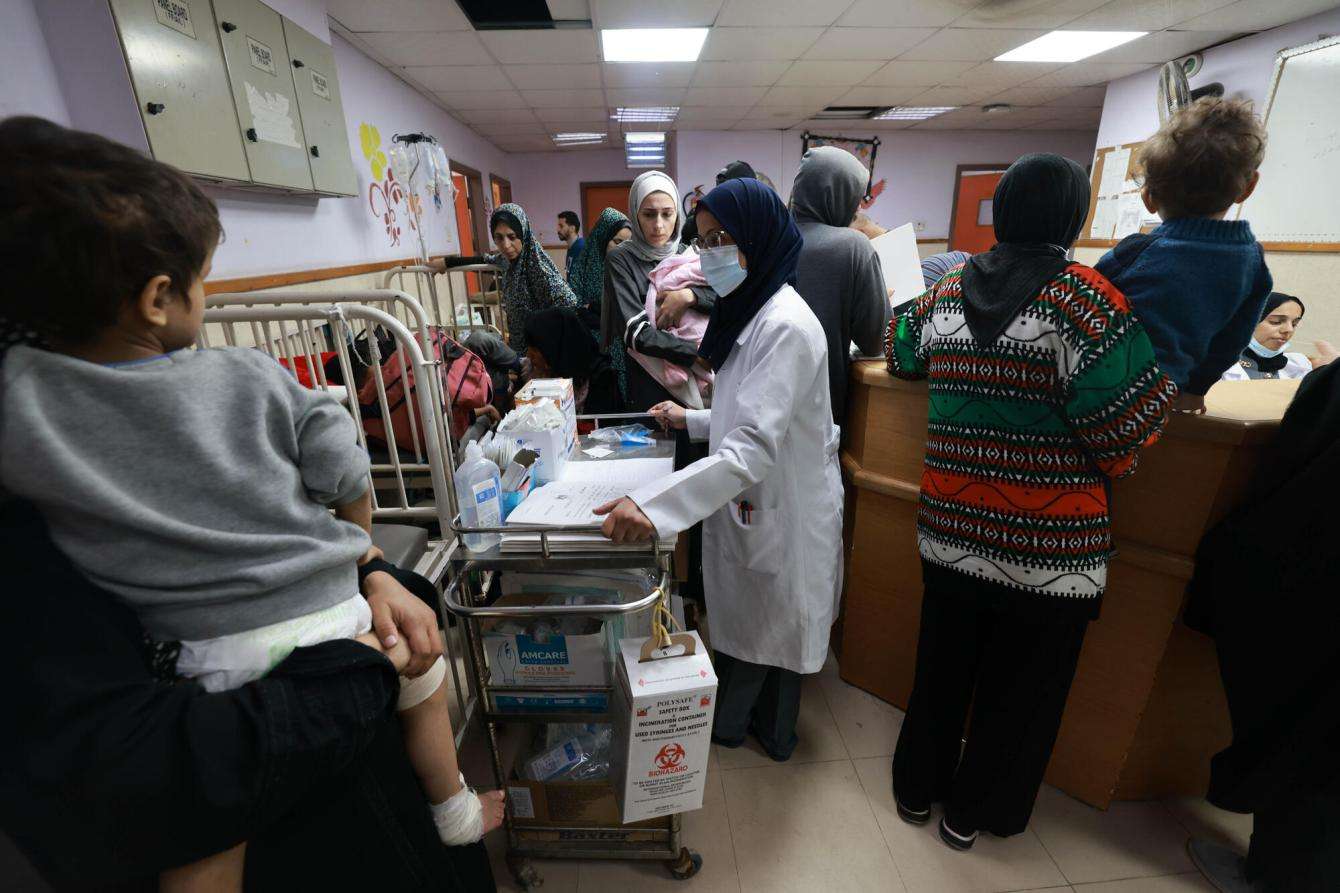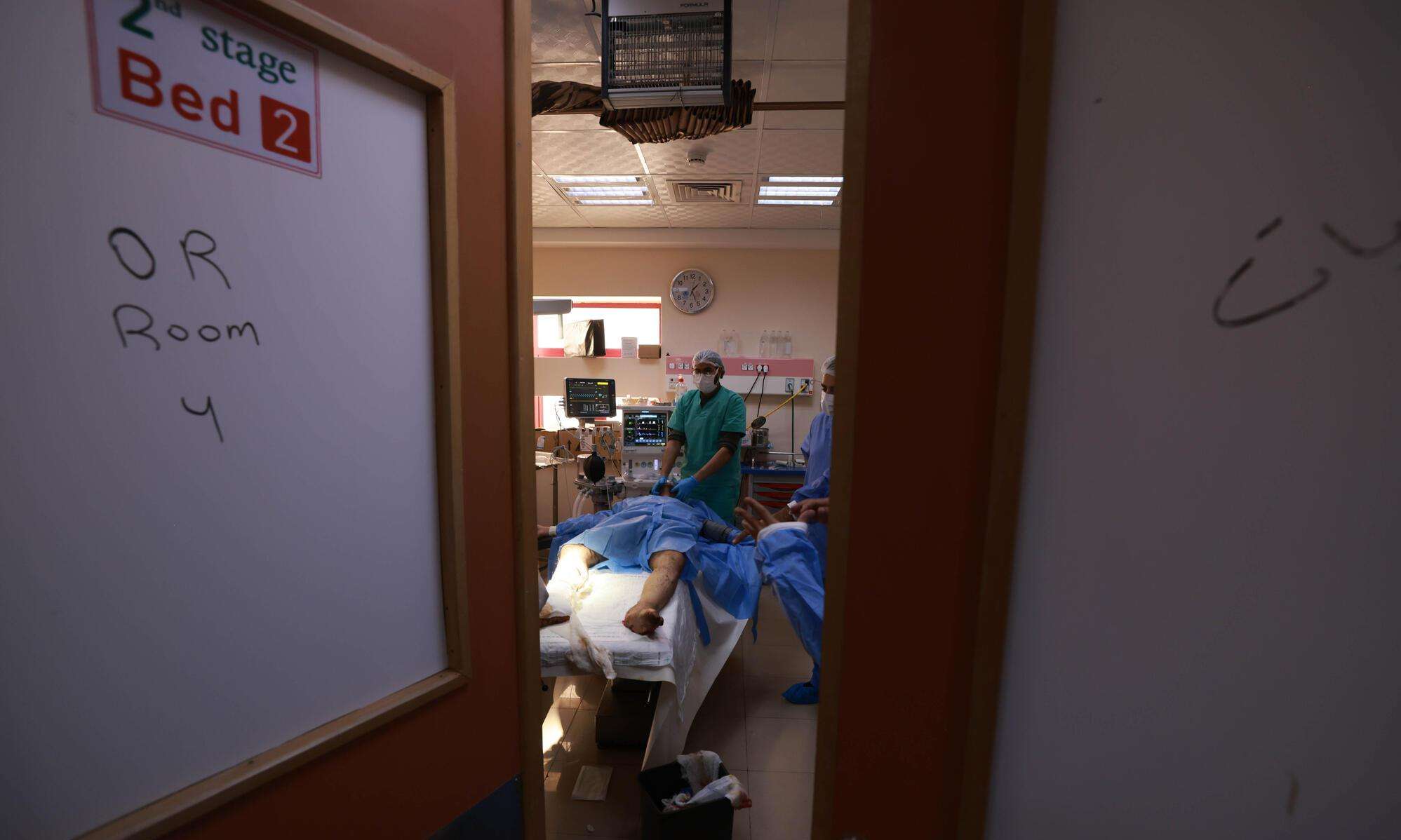UPDATE 12/10/23: Ten days since MSF was forced to stop providing support to Martyrs and Beni Suheila clinics due to Israeli forces’ evacuation orders for the area, we are seeing the complete collapse of health care services in the area, along with the rest of the health care system in Gaza.
Nearly half of the consultations MSF staff provided in these clinics were for children under the age of five. Our wound dressing team was treating patients who are now left with infected wounds, including some with worms inside upon arrival.
In Rafah, the southernmost area of the Strip and where people from Khan Younis and central Gaza have been pushed to, health services are extremely limited. On December 9, the MSF team in Rafah started supporting Al-Shaboura clinic, where they treated over 130 patients on the first day.
“Every other patient in the clinic has a respiratory tract infection due to prolonged exposure to cold and rain,” says Nicholas Papachrysostomou, MSF emergency coordinator in Gaza. “People are living in extremely poor hygiene conditions. In some shelters, 600 people share a single toilet. We are already seeing many cases of diarrhea. Often children are the worst affected.”
The United Nations Security Council must demand an immediate and sustained ceasefire, to lift the siege and ensure unrestricted aid to the entire Gaza Strip.
Since the fragile truce between Israel and Hamas collapsed on December 1, hundreds of Palestinians have been killed and injured amid intensified aerial and ground attacks by Israeli forces, particularly in southern Gaza.
Two hospitals supported by Doctors Without Borders/Médecins Sans Frontières (MSF)—Al-Aqsa Hospital in central Gaza and Nasser Hospital in the south—where MSF’s Palestinian and international staff are working and living, are barely able to cope with the influx of patients.
“We hear bombing around us, day and night,” said Katrien Claeys, MSF team leader in Gaza’s Middle Area, where MSF teams support local health workers in treating people with blast injuries and burns. “In the last 48 hours, over 100 dead and over 400 injured people arrived at the emergency room of Al-Aqsa Hospital. Some patients were taken for surgery right away.”

Hospitals are at a breaking point
Due to the overwhelmed capacity of hospitals, not everybody can receive care. Massive influxes of patients have forced hospital staff to prioritize patients in life-threatening condition, and those whose lives are not immediately at risk may not be able to receive services. “We see patients with signs of infection and necrotic tissue, as they have not received a change of wound dressing in days and sometimes weeks,” said Claeys.
MSF teams have set up a temporary wound dressing unit within Al-Aqsa Hospital to provide wound management to patients with chronic wounds, or injuries from domestic accidents or previous attacks.
Nasser Hospital in Khan Younis, where MSF teams provide surgical care to patients with trauma and burn injuries, is now at breaking point due to the continuous influx of new patients.
“The hospital has been receiving multiple severely injured patients nearly every hour,” said Chris Hook, MSF medical coordinator in Khan Younis. “There is no available space anymore—it really is a terrible situation. Everyone is genuinely worried about what will come next.”

Israeli forces order civilians to move farther south
As the focus of Israel’s aerial and ground offensives shifts to the south, people in some neighborhoods in central Gaza and Khan Younis have been ordered to evacuate toward Rafah, along the Egyptian border. We have had to suspend our medical support to Martyrs and Beni Suhaila clinics because they are located in areas under the evacuation order.
“Every day, Israeli authorities order a new neighborhood to evacuate, asking people to move to another city, farther and farther south,” said an internally displaced MSF staff member in Khan Younis. “Even during the truce, people were not allowed to go back north to their homes. Only three or four neighborhoods remain accessible and all of them are overcrowded.”
The majority of the 1.8 million internally displaced people in Gaza have sought shelter in the south, where they currently live in appalling conditions. Many civilians have already been displaced several times since October 7. They have nowhere to go. Nowhere is safe.

Movement restrictions and bombardment block access to care
Gaining access to medical care and other essential services has become extremely challenging for people in the south of Gaza. Tight movement restrictions imposed by Israeli forces and the ongoing heavy shelling and bombing prevent people from seeking urgent and timely medical help, while also hindering our team’s capacity to respond.
Back in Nasser Hospital, the number of displaced people has markedly increased again since last Saturday, with new shelters being set up in every corner of the parking lot. Many people are sleeping on the floor next to the medical facility.
“In a military campaign that has lasted weeks, with only a brief respite, the speed and scale of the bombing continues to plumb the depths of brutality,” said Hook. “Almost two million people are left without options. The only solution is an immediate and sustained ceasefire and the unrestricted supply of aid to the entirety of the Gaza Strip.”




